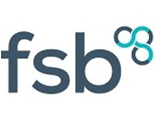Has anyone else noticed that people have become more ignorant over the past few years? I’m sure some of you have just spat your tea out thinking “that’s rich coming from a recruiter!” and I get it, sadly recruiters don’t have a great reputation for communication, however, you can’t tar every recruiter with the same brush! Having spoken to many other recruiters, “ghosting” is so wide-spread from candidates now, that systems and processes are now common place within recruitment businesses infrastructure in order to deal with the issue.
However, that’s only a small part of it, it’s not just bad communication that has increased, it’s overall ignorance. Over the past few years, I have witnessed a notable increase in ignorance across various aspects of society and having done a little research on this, it’s not an isolated issue. This phenomenon is not limited to any particular region or group; it seems to have permeated every corner of the globe. Understanding the factors contributing to this growing trend is essential to address the challenges it poses both in our work lives as well as our relationships.
- Information Overload
The digital age has ushered in an era of unprecedented information accessibility. While this is generally a positive development, it also presents challenges. The constant bombardment of information through social media, news, and online platforms can be overwhelming. People may find it difficult to discern credible information from misinformation, leading to confusion and ignorance.
Think about how many apps we have on our phones or devices and how many notifications come through from text messages to email notifications to social media pop-up’s and even news alerts. It can be so overwhelming and it’s no wonder that sometimes people often forget, overlook or even ignore getting back to someone when they are bombarded with so many other messages from different sources.
- Confirmation Bias
The rise of social media and personalised content algorithms has led to the reinforcement of existing beliefs and biases. People are more likely to be exposed to information that aligns with their preconceived notions, reinforcing ignorance by limiting their exposure to diverse perspectives. This phenomenon can create echo chambers that stifle critical thinking and open dialogue.
- Polarisation
In recent years, political and social polarisation has become increasingly evident. People are more likely to align themselves with one side of an issue, often refusing to consider alternative viewpoints. This polarisation can foster an “us vs. them” mentality, making it difficult for individuals to empathise with or understand those on the other side of the spectrum.
- Distrust in Institutions
A growing distrust in institutions, such as government, media, financial services and science, has contributed to the rise in ignorance. Due to dangerous mismanagement of world affairs in recent years and the obvious cracks many organisations have exposed, more people believe that these institutions are biased or untrustworthy, leading them to reject expert opinions and established facts from genuine sources due to the blurred lines that are caused between different organisations.
5. Disinformation and Misinformation
The rapid spread of disinformation and misinformation has fueled ignorance. False or misleading information can easily go viral, and it can be challenging to correct the record once false beliefs take hold. This creates a fertile ground for ignorance to flourish.
- Decline in Critical Thinking
In our fast-paced world, critical thinking and fact-checking often take a backseat. People may be more likely to accept information at face value without questioning its validity. The decline in critical thinking skills can make it easier for ignorance to take hold and spread.The huge and rapid emergence of AI coupled with media manipulation technologies is a great example of this, everyone believing that a social media post, video, photo or sound clip of something is genuine without questioning it’s origin.
- Lack of Media Literacy
Media literacy is crucial for discerning credible sources and information. Unfortunately, many individuals lack the necessary skills to critically evaluate the information they encounter online, leading to a proliferation of ignorance.
So why does this all matter you ask?
The effect this has in the professional sphere can be so damaging. Going back to the example of candidates ghosting, this can have negative consequences where the “ghost” may not be reconsidered by the recruiter they ignore due to loss of confidence. This could also have knock on effects with the hiring organisation due to interviewee’s not showing up resulting in the hirer having serious reservations of re-interviewing the candidate in the future.
On a more social level, the implications of ignorance can result in far reaching, long-term issues which can contribute to a lack of personal growth, relationship issues, mental health issues, limited career prospects and limited financial security.
So overall, the increase in ignorance over the past few years is a multifaceted issue. It’s important to recognise that addressing this challenge requires a collective effort. Promoting media literacy, critical thinking, and open dialogue are some of the steps that can help mitigate the rise of ignorance. Additionally, fostering a sense of curiosity and a willingness to engage with diverse perspectives can go a long way in combating this trend. By understanding the root causes and working together, we can strive to create a more informed and empathetic society. We can only hope!








Share
Facebook
Twitter
LinkedIn
Telegram
Tumblr
WhatsApp
VK
Mail